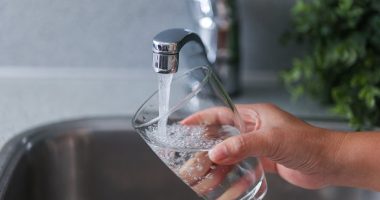Share this @internewscast.com
A measles alert was issued for Sydney on Sunday and other airborne illnesses are on the rise, while Australia’s Covid load is relatively low after the summer’s surge of the JN.1 variant.
New South Wales Health issued an alert on Sunday morning after a woman caught measles from a child who had been diagnosed days earlier.
Measles is highly contagious and can cause encephalitis, pneumonia and ear infections and can increase the risk of miscarriage or preterm labour.
Australia was declared measles-free in 2014 once vaccination was widespread, and it is still considered a rare disease. There have been 28 cases detected this year.
Western Sydney Local Health District spokesperson Conrad Moreira said anyone who had contact with the woman should monitor for symptoms.
Anyone who was at Baby Bunting in Blacktown between 3pm and 4pm on 24 March, Kmart Blacktown between 4pm and 5pm on 24 March, Winston Hills Mall between 12pm and 2.30pm on 28 March, or Westmead hospital emergency department between 2pm and 10.30pm on 29 March may have been exposed.
Moreira said it could take up to 18 days for symptoms to develop. “Symptoms include fever, sore eyes, runny nose and a cough followed three or four days later by a red, blotchy rash that spreads from the head to the rest of the body,” he said.
“Anyone who develops symptoms should see their GP and call ahead to make sure they are not put in the waiting room with other patients.
“Measles is highly infectious and anyone born during or after 1966 needs to make sure they have received two doses of measles vaccine to be properly protected.”
The latest national statistics show flu levels are “currently higher than expected”, with almost twice as many cases as the same time last year.
“This may be due to an increase in disease circulation in the community and waning protection from seasonal influenza vaccinations given during the 2023 influenza season,” the National Notifiable Diseases Surveillance System report warned.
“But [it] may also be impacted by changes in health-seeking behaviour associated with recent increases in Covid-19 circulation over the summer period in many jurisdictions, such as increased testing for respiratory infections.”
Pertussis (whooping cough) cases have been surging around the world, including in Australia. Respiratory syncytial virus (RSV) is also increasing, with experts warning there will be more infections as winter approaches.
after newsletter promotion
Covid-19 levels are relatively low for the first time this year, however health department data shows there are currently outbreaks in 194 aged care homes, with 22 new outbreaks, 1,338 cases and 15 deaths last week.
While vaccination is the best way to reduce hospitalisation and death from Covid-19, since the start of the pandemic experts have also been calling for improved building ventilation and air quality monitoring.
On Friday, a paper published in the journal Science recommended national indoor air quality (IAQ) standards to protect against pollution and disease. The research was led by Queensland University of Technology’s air quality expert Prof Lidia Morawska, who previously led an appeal for the World Health Organization to recognise that Covid was an airborne virus.
Her latest research focuses on the pollutants carbon dioxide, carbon monoxide and PM2.5, which she said acted as a proxy to measure ventilation and air quality.
Morawska said most counties do not have any legislated standards to monitory air quality, and that cheap, robust CO2 sensors are readily available.
In the paper, Morawska and a team of international experts wrote that people in urban and industrialised society spend more than 90% of their time indoors, and that most building codes did not focus on airborne disease transmission.
“But the Covid-19 pandemic has made all levels of society, from community members to decision makers, realise the important of IAQ for human health, wellbeing, productivity and learning,” the researchers wrote.
“We propose that IAQ standards be mandatory for public spaces.”
Professor Brendan Crabb, an Australian infectious diseases expert and the director of the Burnet Institute, said it was up to authorities to ensure clean air, because individual actions were “tinkering” and “like asking people to boil their own water”.
He said for too long officials around the world were stuck with the idea that Covid was spread primarily by droplets rather than airborne particles which can stay aloft for long period of time.
Describing “droplet dogma” as “the biggest misstep of the pandemic”, Crabb said it meant Australia had not embraced air quality standards and ventilation plans, which would help protect against Covid, future pandemics, other airborne diseases including measles, whooping cough and influenza, and pollutants including from bushfire smoke.
He advocated improved personal protective equipment, including N95 masks, and ventilating spaces that are challenging, including school classrooms, aged care centres and day care centres.
“The things we can control are vaccination rates and clean indoor air,” Crabb said.
Last week WHO released a manual on risk assessment for indoor, airborne Covid, which Crabb said was a “breakthrough” in terms of its emphasis on the airborne nature of the disease and the need for building ventilation.













